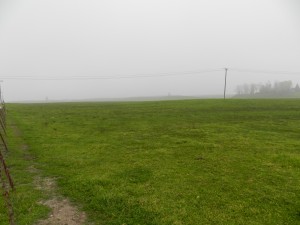
California is entering a fourth year of drought. Water tables and storage are near historic lows. Serving northeast Stanislaus County, the Oakdale Irrigation District (OID) is about the only water provider in the state claiming to have surplus supplies. Thinking that more money can be made selling water outside the district than locally, OID management and Board of Directors are anxious to sell water.
Proposition 218
On November 5th, 1996, California voters passed Proposition 218. Under the law, public water districts are not permitted to charge their customers more than the actual cost to provide water. A loophole in the law allows water districts to sell surplus water to other districts for profit.
The proposition passed because many water districts charged customers much higher rates than the cost of delivery; excess revenue was being used to fund projects not related to water processing or delivery. Water charges raised money in lieu of taxes.
As an example, the City of Modesto charged water rates that generated millions of dollars in revenue above the cost of delivery. The profit from water sales to customers went into the general fund for an assortment of expenditures. After Proposition 218 passed, the city had to adjust its rates downward to meet the requirements of the new law.
OID Finds Proposition 218 Loophole
The Oakdale Irrigation District wants to take advantage of a loophole in Proposition 218 by selling “surplus” water to the Westlands Water District. The district is helping create the “surplus” by paying select customers to cut back on water use.
Under the OID plan, some farmers will fallow their land. The OID will sell the unused water allocation as “surplus” and send water to a district comprised mainly of corporate farms. Westlands supposedly will pay retail for water allegedly not needed by local water users.
In reality, farmers immediately outside the existing district want OID boundaries expanded so that they can buy water for their farms. OID does not want to expand its boundaries because it would not be able to sell the “surplus” water at retail. Ignoring its own charter, OID prefers to retail water out of the area rather than serve local farming interests.
A Flaw in OID Retail Sales Plan
The proposed sales price of water in the contract could be substantially lower than the retail value will be in the summer of 2015, when the 4th year of drought is fully felt. The present deal OID wants to enter into with Westlands Water District reportedly will net less than $500 per acre foot. Is the proposal a price that would optimize profit?
A couple of years ago, Modesto Irrigation District considered selling water to the City of San Francisco for $700 per acre foot. One would think that after a couple more years of drought, the price of water would have increased. A logical conclusion is that OID will sell its water below market price.
Private Profit from Public Water
The district will use public water for private profit. The farmers who let their land go fallow make money and the corporate farms in the Westlands water district make money. One Board member of OID announced that he might make money by fallowing his land, but said that he did not consider his participation in the deal a conflict of interest. Meanwhile, the local economy will suffer lower agricultural production and less economic activity, a net loss for Stanislaus County.
Expanding the Scheme
If one expands OID’s program of paying farmers not to use water, the entire Oakdale Irrigation District could eventually pay all of its farmers not to use water. The demand for water in the rest of California can easily absorb whatever amount of water the OID has in its inventory. Therefore, all of the irrigation water in the district could be sold off at retail and the entire district could be turned into a dust bowl. Crops would be produced out of the area rather than locally.
But wait, the program can expand even further. Other water districts serving agriculture throughout the state could develop similar schemes. How about this? San Francisco and Los Angeles want to buy more water to promote urban development. Why not declare all agricultural water as “surplus” and sell it to the cities at retail?
The Public Interest
Money can be made by circumventing the intent of Proposition 218. The intent of the law is to prevent the type of profiteering that Oakdale Irrigation District is setting up. The public wants water to serve the public interest, not provide a mechanism for private individuals to profit from a public necessity.
Agriculture is an important industry in California. It generates enormous wealth through production of products essential for survival. Agriculture needs an inexpensive water supply so that farming remains viable. Farmers need large quantities of water to keep the land productive. If they do not use enough water, the soil eventually becomes too alkali to produce food.
The Oakdale Irrigation District’s scheme to initiate retail sales of water to Westlands Water District does not serve the public interest of its customers or Stanislaus County. If the district proceeds with the plan, another statewide proposition may be needed to outlaw it.
